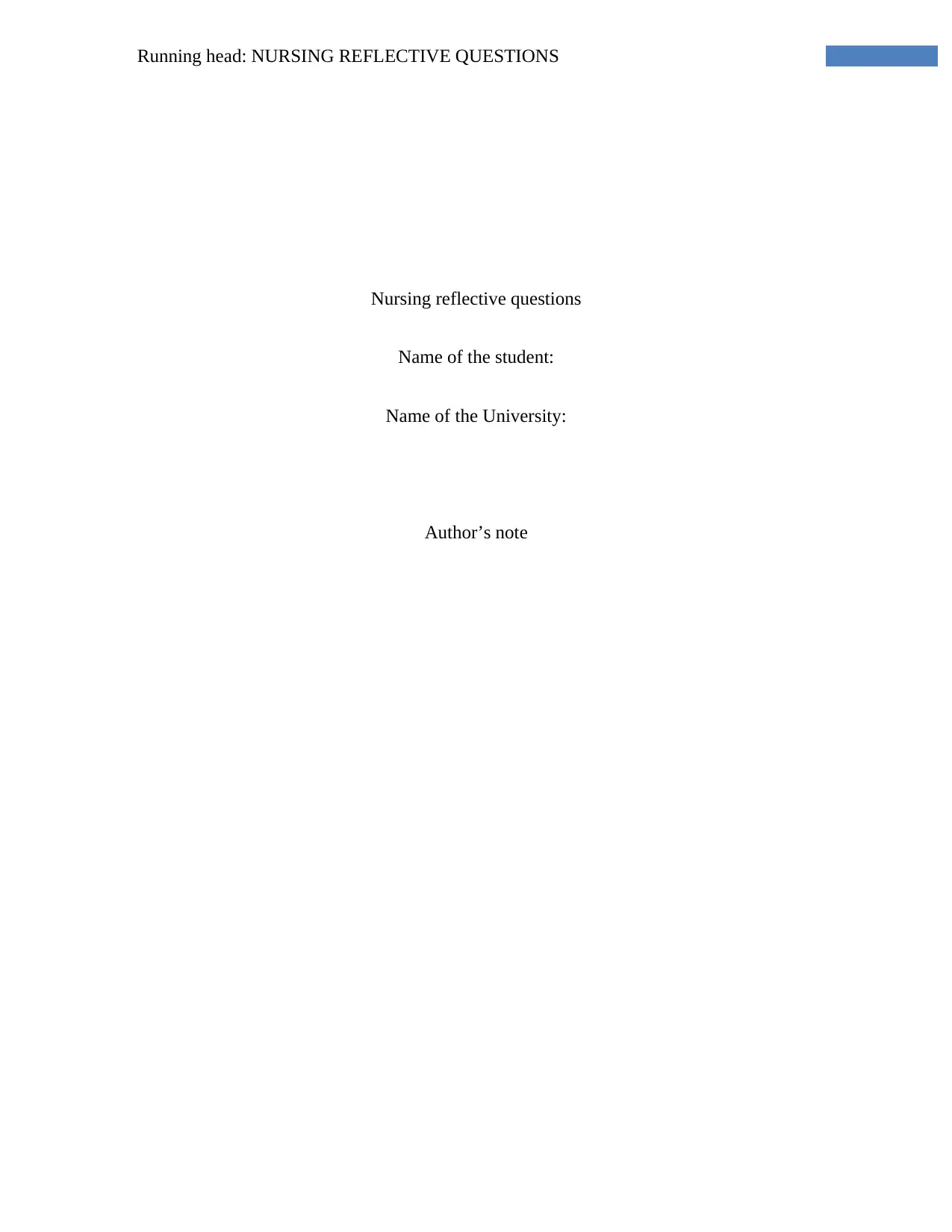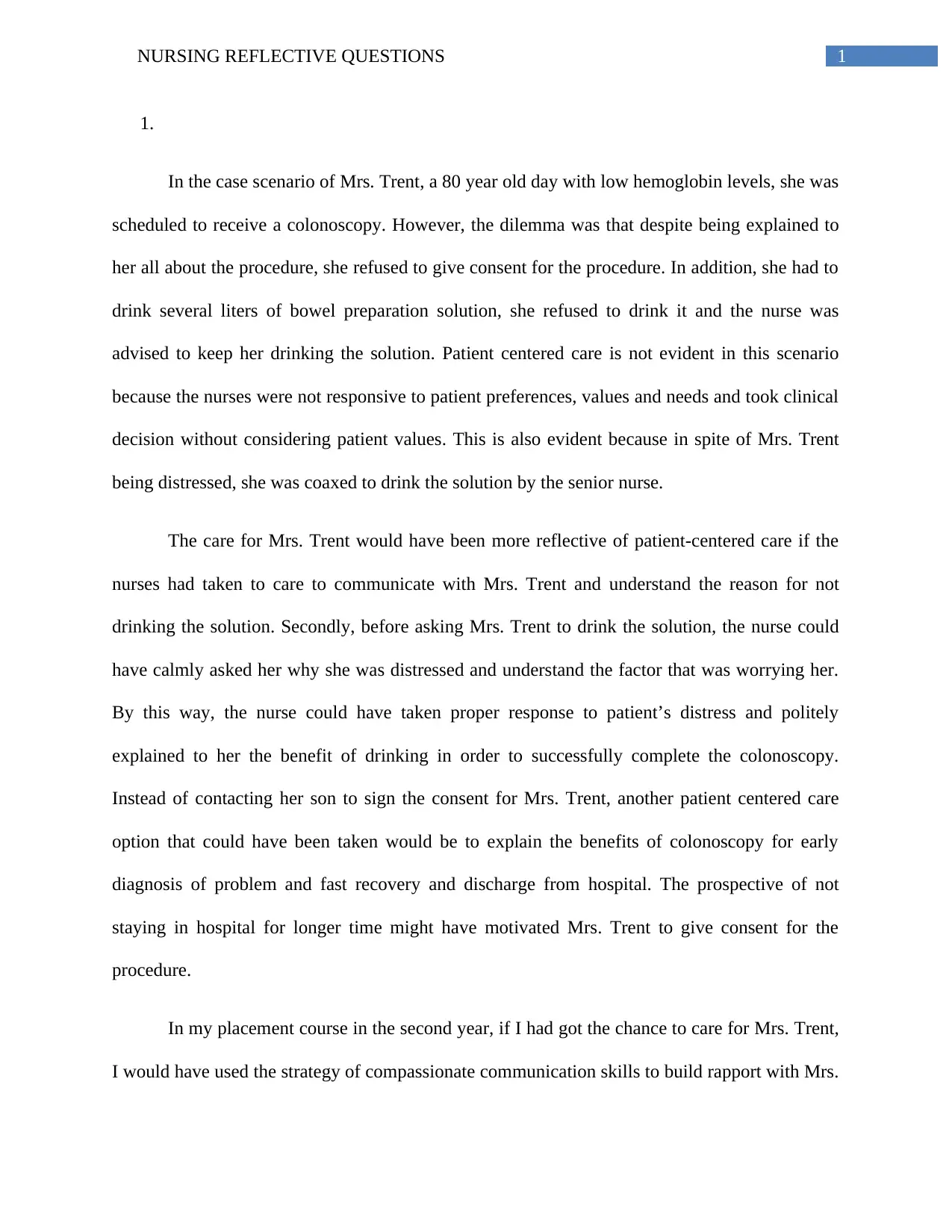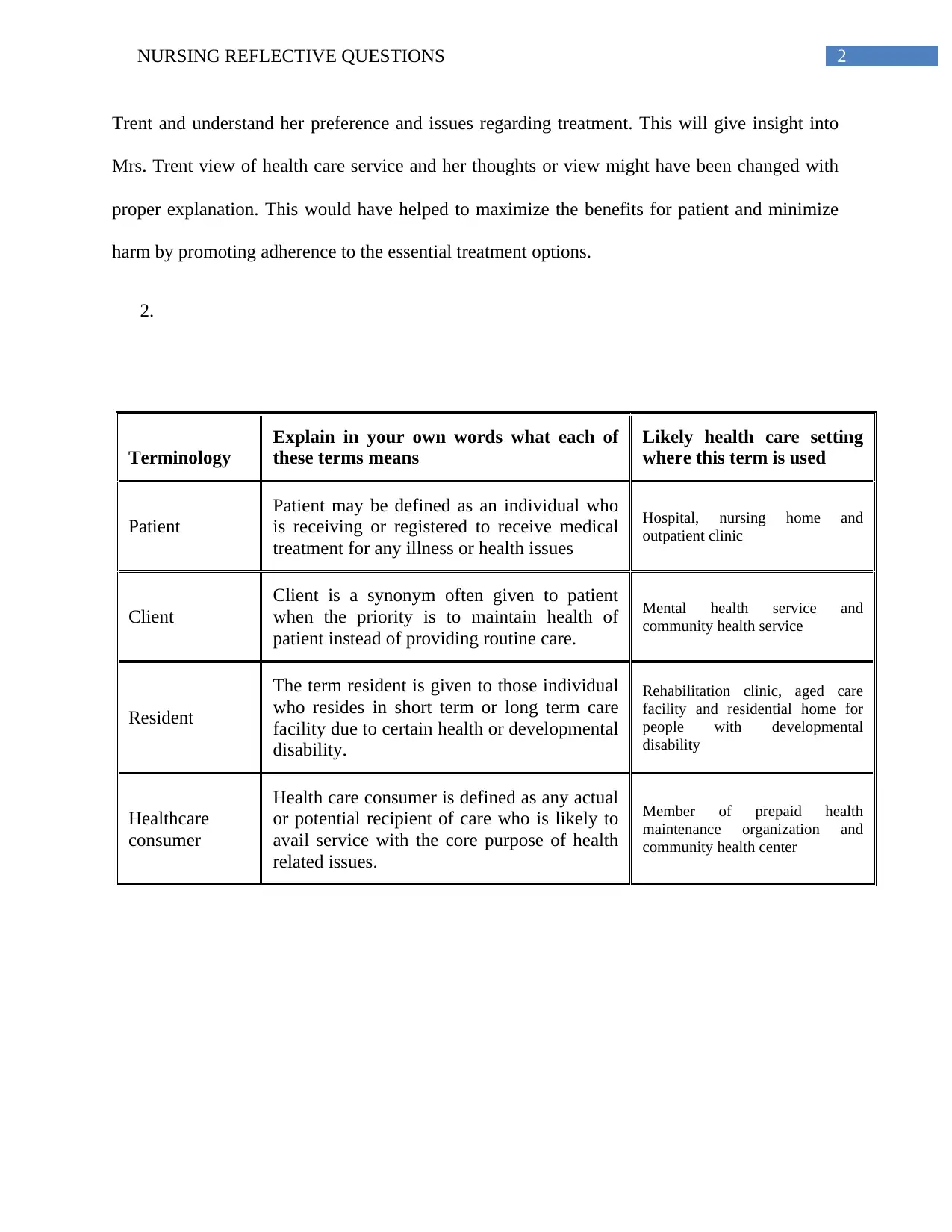Nursing Reflective Questions: Patient-Centered Care, Communication
VerifiedAdded on 2020/04/21
|4
|586
|115
Report
AI Summary
This report presents nursing reflective questions centered on patient care, particularly focusing on a case involving a patient's refusal of a colonoscopy and the importance of patient-centered care. The report analyzes the scenario, highlighting the lack of patient-centered care where the patient's preferences and concerns were not adequately addressed. It suggests alternative approaches, such as improved communication and explaining the benefits of the procedure to gain patient consent. The report defines key terms like 'patient,' 'client,' and 'resident' in the context of healthcare settings. It also explores how the author, as a nursing student, would apply compassionate communication skills to build rapport and address the patient's concerns. The ultimate goal is to maximize patient benefits and minimize harm through effective treatment adherence and understanding patient perspectives.
1 out of 4











![[object Object]](/_next/static/media/star-bottom.7253800d.svg)